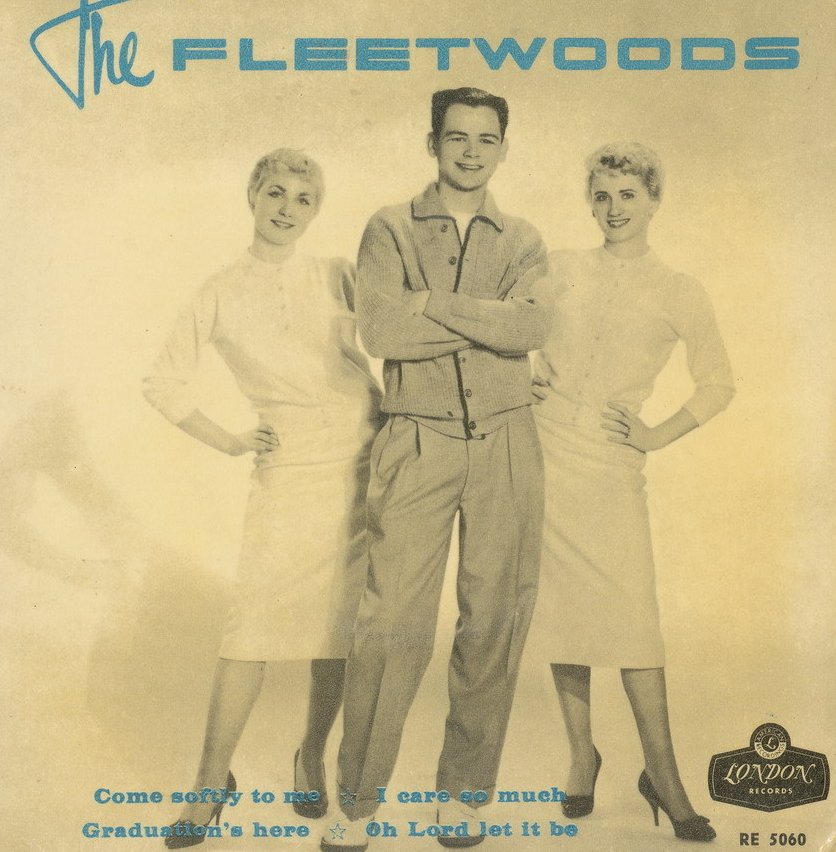The Number Ones is a new column where I'll review every single #1 single in the history of the Billboard Hot 100, starting with the chart's beginning, in 1958, and working my way up into the present.
The Fleetwoods - "Come Softly To Me"
HIT #1: April 13, 1959
STAYED AT #1: 4 weeks
There's this narrative in rock history that, after the initial explosion of rock 'n' roll, the music became tame and staid until the Beatles came along and revitalized it. Maybe that's true. By the time the Billboard Hot 100 started, leading lights like Chuck Berry, Little Richard, and Jerry Lee Lewis weren't really making hits anymore. (Little Richard and Lewis would never score #1 hits; Berry would, but not until years later, with "My Ding-A-Ling.") There were plenty of unthreatening teen-idol hits topping the charts in those late-'50s and early-'60s years. Plenty of those songs sounded deeply innocent. But for some of those songs, the innocence was the point. Some of those songs even turned that innocence into a strength.
The Fleetwoods were three high-school kids from Olympia, Washington, and they managed to land two #1 hits in a single year before fading into total obscurity and, eventually, taking civilian jobs. When they made "Come Softly To Me," the first of those hits, they recorded it entirely a cappella; the only sound other than their voices was the jingling of group member Gary Troxel's car keys. Eventually, the song went to another studio for overdubbing, but all that was added was a delicate acoustic-guitar figure. The song is a starry-eyed hymn of devotion -- clearly inspired by the Everly Brothers and somehow even more stripped-down than that group's early hits -- and its simplicity is exactly what makes it so great.
The three singers in the Fleetwoods -- two women, one man -- sound like they're trying not to wake a sleeping parent in the next room on "Come Softly." It gets all its rhythm from Troxel's doobie-doos. The lyrics are barely there: "You're my obsession / Forever and a day." But the point isn't really in the words; it's in the way those three voices quietly weave in and out of each other. There is no such thing as a simple time, and the United States of 1959 had virulent institutional racism and nuclear anxiety even more crippling than we're seeing now. But listening to "Come Softly To Me" evokes some kind of gentle cloud-world, where nobody has any problems. All these decades later, it still works like a balm.
GRADE: 8/10
BONUS BEATS: UK pop singer Eliza Doolittle sampled "Come Softly To Me" on her 2010 album track "Missing." Here's that:






